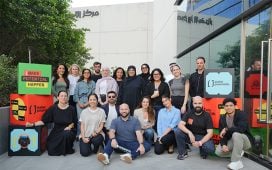Whenever anybody says 2020, there’s just something about it that makes it feel like it’s still a ways away. Doesn’t it feel like 2020 when The Jetsons is supposed to take place; a utopian future where sci-fi is reality? Whether you feel the same way or not, at the breakneck speed that technology is evolving, it really just might happen. The truth is, it’s a lot closer than we give it credit for. With the fast-paced nature of the world, marketers have always had to think X amount of steps ahead. With all the new technology sprouting up, the ability to be able to look at a trend, anticipate where it’s going, manoeuver, and be in the right place at the right time is becoming easier. But a
To continue reading this article you need to be registered with Campaign. Registration is free and only takes a minute. Register Now or sign in below if you already have an account.









